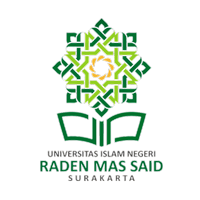Akromusyuhada, A. (2023). Jurnal Multidisiplin Ilmu Akhlak Terhadap Lingkungan Perspektif Islam. Akhlak Terhadap Lingkungan Perspektif Islam, 2(04), 1103–1109.
Amir, F., Miru, A. S., & Sabara, E. (2025). Urban Household Behavior in Indonesia: Drivers of Zero Waste Participation. http://arxiv.org/abs/2505.17864
Amri, A. S. (2023). Peran Mahasiswa Sebagai Agen Perubahan Di Masyarakat. Journal of Instructional and Development Researches, 3(1), 29–34.
Andani, K. F. (2023). Tasawuf Akhlaki dan Relevansinya Terhadap Sikap Penolakan Akhlak Tercela Perspektif Islam. Jurnal Pendidikan Agama Islam, 4(2), 167–182. https://doi.org/10.35719/adabiyah.v4i2.818
Andi Awaludin. (2025). Membangun Kesadaran Lingkungan melalui Gerakan Dakwah: Pendekatan Teori dan Praktik. PROGRESIF: Jurnal Dakwah, Sosial, Dan Komunikasi, 2(1), 31–40. https://doi.org/10.63199/progresif.v2i1.32
Apriani, Y., Liquiddanu, E., & Hisjam, M. (2025). JPLB Tinjauan sistematis tentang faktor-faktor yang mempengaruhi perilaku pemilahan sampah rumah tangga. 9(2), 178–197.
Arsyad, M., & Hasanah, N. (2025). Nilai Ekologis Islam: Konsep Khalifah Dan Amanah. Al-Mustafid: Jurnal of Quran and Hadith Studies, 4(1), 33–48. https://ejournal.iain-manado.ac.id/index.php/mustafid
Bakaruddin, B., Afriyeni, A., & Algusri, J. (2023). Kampus Hijau Berkelanjutan Dalam Perspektif Pendidikan Lingkungan. Jurnal Akuntansi Dan Ekonomika, 13(1), 99–106. https://doi.org/10.37859/jae.v13i1.4723
Basri, S., Adnan, Y., Widiastuty, L., Asrul Syamsul, M., & Indar, I. (2024). Islamic Environmental Ethics: A Cultural Framework for Sustainable Resource Management and Global Ecological Stewardship. Diversity: Disease Preventive of Research Integrity, 5(2), 86–93. https://doi.org/10.24252/diversity.v5i2.52342
Bergmann, M., Gutow, L., & Klages, M. (2015). Marine anthropogenic litter. In Marine Anthropogenic Litter. https://doi.org/10.1007/978-3-319-16510-3
Budiyarto, A., Clarke, B., & Ross, K. (2025). Overview of waste bank application in Indonesian regencies. Waste Management and Research, 43(3), 306–321. https://doi.org/10.1177/0734242X241242697
Gunawan, C. (2024). Nilai-nilai dakwah pada lembaga dakwah kampus. Spektra: Jurnal Ilmu-Ilmu Sosial, 6(1), 174–191.
Habibi, I. (2018). Implementasi Nilai-Nilai Dakwah Ekologis dalam Program Pengembangan Kampung Wisata Matras Kelurahan Sinar Baru Kabupaten Bangka. Mawa’Izh: Jurnal Dakwah Dan Pengembangan Sosial Kemanusiaan, 8(2), 259–274. https://doi.org/10.32923/maw.v8i2.774
Hasnawati. (2020). Akhlak Kepada Lingkungan. Jurnal Pendais, 2(2), 203–218.
Hikmawati, H. (2021). DAKWAH VIRTUAL: STRATEGI DAKWAH UKM LDK MPM UNHAS DALAM SITUASI PANDEMI COVID-19”(Sebuah Kajian Etnografi). https://repository.unhas.ac.id/id/eprint/7911/
Jambeck, J. R., Roland, G., Wilcox, C., Siegler, T. R., Perryman, M., Andrady, A., Narayan, R., & Law, K. L. (2015). Marine pollution. Plastic waste inputs from land intothe ocean. Science, 347(6223), 764–768.
Kaza, S., Lisa C. Ya, Perinaz Bhada-Tata, & Frank Van Woerden. (2018). What a Waste 2.0: A Global Snapshot of Solid Waste Management to 2050. World Bank. (Vol. 17).
Maalouf, A., & Mavropoulos, A. (2023). Re-assessing global municipal solid waste generation. Waste Management and Research, 41(4), 936–947. https://doi.org/10.1177/0734242X221074116
Made Rianita, N., Luh De Erik Trisnawati, N., Eka Nopiyani, P., & Satya Dharma, S. (2020). Peningkatan Motivasi Belajar Berbasis Spiritual Terhadap Hasil Belajar Mahasiswa. Mimbar Ilmu, 25(3), 338–345. https://ejournal.undiksha.ac.id/index.php/MI/article/view/28312
Magfirah HS, S. (2023). Tantangan Penerapan Gaya Hidup Zero Waste Skala Rumah Tangga di Indonesia. Jurnal Multidisiplin West Science, 2(07), 511–522. https://doi.org/10.58812/jmws.v2i07.491
Meiwinda, E. Ri., Fadhli, M., Hasibuan, R., & Zikri, A. (2024). Pengolahan Sampah Berbasis 5R (Reduce, Reuse, Recycle, Replace, Replant) Sebagai Implementasi Mata Kuliah Kewarganegaraan Di SD Negeri 137 Palembang. Jurnal Dehasen Untuk Negeri, 3(2), 241–246. https://doi.org/10.37676/jdun.v3i2.6434
Mutakalim Mutakalim. (2020). Integrasi Sikap Spiritual dan Sikap Sosial dalam Pendidikan Islam. AL-ISHLAH Jurnal Pendidikan Islam, 18(2), 211–231.
Noviyanti, V., Hidayat, D., & Hidayat, Z. (2022). Environmental care communication in the Zero Waste Indonesia community: A case study of the #TukarBaju digital campaign. Fashion, Style and Popular Culture, 9(4), 555–582. https://doi.org/10.1386/fspc_00160_1
Nurrahmi S., A., Safrudin, I., Hasan Ridwan, A., & Sohifah, S. (2023). Keseimbangan Ekologis dalam Perspektif Islam: Studi Komparatif Tafsir Al-Misbah dan Tafsir Al-Azhar. Islamica, 7(2), 31–42. https://doi.org/10.59908/islamica.v7i2.115
Plastic Waste Discharges from Rivers and Coastlines in Indonesia. (2021). Plastic Waste Discharges from Rivers and Coastlines in Indonesia. https://doi.org/10.1596/35607
Rachmadian, R. H., Sumarmi, S., Masruroh, H., Utaya, S., & Suharto, Y. (2024). Membentuk Kesadaran dan Keterlibatan Mahasiswa sebagai Aktor Penggunaan Transportasi dan Energi Berkelanjutan di Perguruan Tinggi. Journal of Education Action Research, 8(1), 169–178. https://doi.org/10.23887/jear.v8i1.76919
Rahayu, S., Sitorus, N., Berutu, A., Handayani, A., Ariansyah, M., & Wulandari, S. (2025). Peran Mahasiswa sebagai Agen Perubahan dalam Pelestarian Lingkungan Hidup Studi Kasus : Organisasi Mapasta UINSU & Mahasiswa FEBI UINSU.
Rakhmat, A. (2022). Islamic Ecotheology: Understanding the Concept of Khalifah and the Ethical Responsibility of the Environment. Academic Journal of Islamic Principles and Philosophy, 3(1), 1–24. https://doi.org/10.22515/ajipp.v3i1.5104
Saddam Husein, N. K. A. P. (2018). Pembinaan Akhlak Mulia Mahasiswa Dalam Lembaga Dakwah Kampus (Ldk) Al-Izzah Iain Ambon. Al-Iltizam: Jurnal Pendidikan Agama Islam, 3(1), 53–64. https://doi.org/10.33477/alt.v3i1.417
Sartika, Y., Sa’diah, H., Halisa, S. N., Suriansyah, A., & Cinantya, C. (2025). Pendidikan Karakter: Implementasi Program Zero Waste di Sekolah Dasar. MARAS : Jurnal Penelitian Multidisiplin, 3(1), 102–110. https://doi.org/10.60126/maras.v3i1.650
Subhi, M. R. (2016). Pendekatan Sufistik dalam Pendidikan Islam (Telaah Pemikiran Hamka). Edukasia Islamika, 1(1), 62–88.
Syukriya, A. J., & Safitri, L. R. (2021). Zero Waste Lifestyle Concept Within Islamic-Science Prespective. Journal of Halal Product and Research, 4(1), 32. https://doi.org/10.20473/jhpr.vol.4-issue.1.32-42
Taufiqurrahman, Z. F., & Hijriyah, M. (2019). Implementasi Nilai-Nilai Kepedulian Lingkungan Hidup Dalam Mata Pelajaran Pendidikan Agam Islam. Al-Misbah (Jurnal Islamic Studies), 7(2), 45–49. https://doi.org/10.26555/almisbah.v7i2.1123
Vioreza, N., Hilyati, W., & Lasminingsih, M. (2023). Education for Sustainable Development: Bagaimana Urgensi dan Peluang Penerapannya pada Kurikulum Merdeka? PUSAKA: Journal of Educational Review, 1(1), 34–48. https://doi.org/10.56773/pjer.v1i1.11
Watsiqotul dkk. (2018). Peran Manusia Sebagai Khalifah Allah di Muka Bumi Perspektif Ekologis dalam Ajaran Islam A . Pendahuluan umat didunia , khususnya masyarakat Indonesia . Saat ini , Islam. Jurnal Penelitian, 12(2), 355–378. https://journal.iainkudus.ac.id/index.php/jurnalPenelitian/article/view/3523/pdf
Widianti, H. (2019). Strategi Dakwah Lembaga Dakwah Kampus (LDK) Dalam Meningkatkan Religiusitas Mahasiswa. Adzikra: Jurnal Komunikasi Dan Penyiaran Islam, 10(1), 50–76. https://doi.org/10.32678/adzikra.v10i1.3799
Widiatmoko, S. A. (2024). Penerapan Konsep Zero Waste Dalam Perspektif Hukum Lingkungan : Tantangan dan Prospek Masa Depan di Indonesia. 1(3).
Zainal, A. Q., & Ansar, A. (2021). Konsep Pendidikan Akhlak Menurut Syekh Al-Zarnuji Dalam Kitab Ta’lim Al-Muta’allim. Education and Learning Journal, 2(2), 126. https://doi.org/10.33096/eljour.v2i2.135
Zulfikar dkk, E. (2023). Eko-Teologi dalam Tafsir al-Azhar: Upaya Hamka dalam Membangun Paradigma dan Berkesadaran Lingkungan. Proceeding International …, 32. http://proceeding.iainkudus.ac.id/index.php/ICQS/article/view/399/0%0Ahttp://proceeding.iainkudus.ac.id/index.php/ICQS/article/download/399/335

